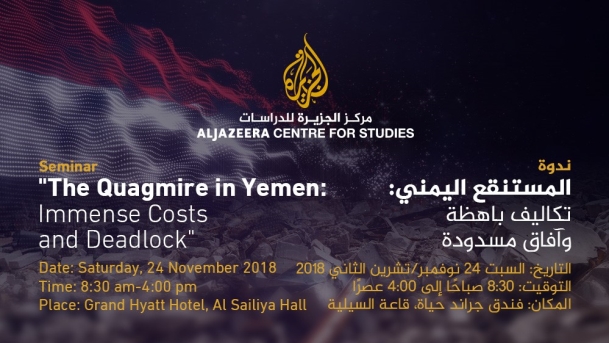
Al Jazeera Centre for Studies is hosting a seminar entitled, “The Quagmire in Yemen: Immense Costs and Deadlock” on Saturday, 24 November 2018, in Doha.
Over the course of three sessions, the seminar will discuss the balance of power in Yemen after three years of war and review the influence of the opposing parties, the areas under their control and the nature of their regional and international alliances. In the second session, the panel will examine the economic and humanitarian cost of the war as well as social and legal implications for the allied countries and the capabilities of Yemen. The third session is set to forecast the future of the war in Yemen and potential scenarios under the current impasse, international pressure and the clashing agendas of the Arab coalition.
The speakers are:
• Fatima Alsmadi, Senior Researcher at Al Jazeera Centre for Studies
• Yasin Al Tamimi, Yemeni researcher and political analyst
• Abdullah Al Ghailani, Professor of Social Sciences at Oman Medical College
• Haoues Taguia, Researcher at Al Jazeera Centre for Studies
• Ali al-Dahab, Yemeni researcher specialised in Yemeni strategic affairs
• Saeed Thabit, Al Jazeera Bureau Chief in Sana'a
• Mahjoob Zweiri, Director of Gulf Studies Center
• Liqaa Maki, Senior Researcher at Al Jazeera Centre for Studies
• Majed Al Ansari, Professor of Political Sociology at Qatar University
• Tawfik Alhumaidi, President of the SAM Organization for Rights and Liberties in Geneva
Concept Note
The new UN envoy to Yemen, Martin Griffiths, failed to bring together the warring parties in Geneva in early September 2018. The Houthis did not attend the meeting, citing logistical reasons that were unacceptable to both Saudi Arabia and UAE. The two countries regarded the Houthis' reasons as ludicrous pretexts that unveil that fact that the Houthis have no real interest in negotiation, but in confrontation in the battlefield. As a result, the drums of war were beaten once again as the Saudi and UAE-led coalition prepared to attack the Hudaydah Port to cut the Houthis and the areas under their control off from the outside world.
Whether the battle takes place or not, and whether or not the coalition wins it, no solution is possible through war. In fact, war will only serve as an additional step in the same direction that the coalition has been heading toward since the beginning.
This direction has five main features:
- The growing rift within the coalition forces: This can be seen clearly in the direct and indirect relationship between the government of Abdrabbuh Mansur Hadi, Yemen's legitimate president, and Emirati leadership. At the direct level, Emirati forces have launched attacks against the legitimate government in Aden and participated in the siege. At the indirect level, UAE is sponsoring anti-legitimacy forces such as the Southern Transitional Council (STC), which has been involved in frequent armed confrontations with government forces. UAE also sponsors Tariq Mohammed Abdullah Saleh, the nephew of ousted President Ali Abdullah Saleh, whose military role particularly in the western front continues to expand.
- Conflicting political goals: The coalition had initially initiated the war with the objective of reinstating Abdrabbuh Mansur Hadi. The UAE, however, had a very different agenda. Thise included supporting forces opposing Hadi to prevent him from exercising power in certain areas under its control. Under this state of conflict, both parties will seek to weaken the other and neither will be succeed in fulfilling its goals – which will work in favor of the Houthis.
- Immense monetary cost: Times has estimated that the cost of the war to be $200 million a day, about $72 billion a year. This is a heavy cost for Saudi Arabia, which is looking for loans from international markets to meet its deficit. As for the humanitarian cost, the United Nations has estimated that between March 2015 and August 2018, some 6,660 civilians were killed and 10,563 injured in the power struggle between the Saudi-backed government and the Houthis.
- Horrible humanitarian cost: The price paid by the Yemeni people has captured the attention of international public opinion remarkably, and imposed pressure on the Western countries that export arms to Saudi Arabia and UAE. This will affect the two countries' supplies and ability to continue operations in the future.
- The Houthis' growing missile capabilities: Over the past three years, the Houthis have fired 87 long-range missiles into Saudi Arabia. A study conducted by the Washington Institute for Near East Policy (WINEP) indicated that hundreds of short-range tactical missile attacks have been waged on Saudi border towns and cities as well as military bases, causing the injury and displacement of thousands. Moreover, missile attacks waged by the Houthis are increasing and becoming more accurate over time. They have also extended to marine activity. A few months ago, the Houthis managed to destroy a Saudi oil tanker, forcing Saudi Arabia to suspend all shipments through Bab el-Mandeb Strait for a few days before resuming in early August 2018.
In this context, the political scene in Yemen is clearly going through a double blockade. There is no negotiation-based settlement in sight and neither of the two parties can turn the tables into its favour. What is probable is that the Houthis will continue to adopt a defensive strategy with the development of their missile strikes. They will also wager on time and the increasing cost of war to erode coalition as it faces more international pressure to constrain its operations. On the other hand, coalition leadership – Saudi Arabia and UAE – will not succumb to the terms dictated by the Houthis because this will serve as a moral and strategic defeat that will have negative impacts at home.
With the participation of an elite group of researchers and politicians from Yemen and neighbouring countries, the seminar will address the following topics:
- The balance of power three years into the war: the power of the opposing forces, the areas under their control and the nature of their regional and international alliances
- The war's economic and humanitarian cost and social and legal impact on the allied countries and Yemen after three years
- The future of the war in Yemen: scenarios of future warfare under the current blockade, international pressure and the clashing agendas of the Arab alliance
Programme
| 8:30-9:00 | Registration |
| 9:00-9:30 |
Welcome Address Mohammed Mukhtar Al Khalil, Director of Al Jazeera Centre for Studies |
| 9:30-11:00 |
Session 1 The balance of power three years into the war: the power of the opposing forces, the areas under their control and the nature of their regional and international alliances Moderator: Mayada Khalil Speakers: |
| 11:00-11:30 | Coffee Break |
| 11:30-13:00 |
Session 2 The war's economic and humanitarian cost and social and legal impact on the allied countries and Yemen after three years Moderator: Ezzeddine Abdelmoula Speakers: |
| 13:00-14:30 | Lunch Break |
| 14:30-16:00 |
Session 3 Scenarios of future warfare under the current impasse, international pressure and the clashing agendas of the Arab alliance Moderator: Ahmed Ashalfi Speakers: |
Speakers
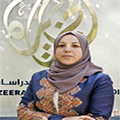 |
Fatima Alsmadi, Senior Researcher at Al Jazeera Centre for Studies specialised in Iranian affairs Alsmadi holds a PhD from Iran; her doctoral thesis was on feminist content in Iranian women’s cinema. She served as an assistant professor at the Faculty of Journalism and Mass Communication at Zarqa University and the Faculty of Media at Middle East University. She also has written and edited a number of books including Political Trends in Iran, Women in Politics, Iranian-American Rapprochement and the Future of the Iranian Role and The Rise, Impact and Future of the Islamic State. |
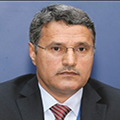 |
Yasin Al Tamimi, Yemeni journalist and political analyst and Spokesperson for the Democratic Awakening Movement (TAWQ) Al Tamimi served as the deputy news director between April 2003 and July 2004 and head of Press Office of the Yemeni Shura Council from 18 July 2004 to December 2012. He is a Yemeni Syndicate of Journalists, the Arab Journalists Association, and the International Federation of Journalists. His research focuses on Yemeni public affairs in the regional and international contexts. Furthermore, he writes a weekly article for the London-based Arabi21. |
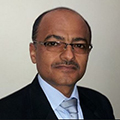 |
Ali Al-Dahab, Yemeni researcher specialised in Yemeni strategic affairs Al-Dahab is preparing his doctoral thesis about the maritime security strategy in the western Indian Ocean. He earned a master’s degree in maritime transport technology (security and marine safety) from the Arab Academy for Science, Technology and Maritime Transport (AASTMT) in Alexandria, Egypt in 2009. Additionally, he participated in a number of military, leadership and administrative courses and statistical analysis as well as various conferences and seminars in Yemen and Egypt. Al-Dahab has published a number of research papers and articles on military, security and political issues. |
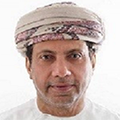 |
Abdulla Mohammed Al Ghailani, Professor of Social Sciences at Oman Medical College Al Ghailani holds a PhD in international relations from Durham University, a master’s degree in international relations from Syracuse University, and a bachelor’s degree in political science from the University of Arizona. His academic and intellectual interests include Islamic political ideology, US foreign policy and GCC strategic affairs. He has participated in a large number of academic seminars and political conferences in the region and abroad. Al Ghailani has also published many research papers and articles on Arab and Gulf affairs. He contributes regularly as a commentator on and analyst of current events on a number of television programmes. |
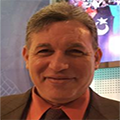 |
Haoues Taguia, Researcher at Al Jazeera Centre for Studies specialised in Gulf affairs Taguia is also the co-editor of two publications: The Blockade on Qatar: The Contexts and Repercussions of the Gulf Crisis and The Salafist Phenomenon: Organisational Diversity and Policies. Previously, he worked in the media, where he founded and chaired a number of daily and weekly independent newspapers in Algeria and produced specialised radio programmes on international and forecasting affairs. Furthermore, Taguia has given lectures at a number of universities and colleges on strategic and geo-political issues. His research focuses on the interrelationships between political geography, social dynamics and security issues. |
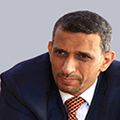 |
Saeed Thabit, Al Jazeera Bureau Chief in Sana’a Thabit was a correspondent for a number of newspapers, magazines and news agencies in London, Amman and Abu Dhabi and served as the chief of their various bureaus in Yemen from 1992 to 2009. Moreover, Thabit contributed to the founding and editing of a number of newspapers from 1990 to 1994. He was elected and re-elected as first deputy to the Yemeni Journalists Syndicate in 2004 and 2009 respectively. Thabit is a founding member of a number of institutions and bodies the National Committee for the Defence of Public Liberties. His research interests are Yemeni politics and media and communication issues. His work has been published by a number of magazines and academic institutions. |
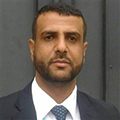 |
Tawfik Alhumaidi, Chairman of SAM for Rights and Liberties in Geneva Alhumaidi was also the Director General of the Legal Department of the National Atomic Energy Commission of Yemen and Deputy Director of the Legal Department of the Yemeni Ministry of Education. He holds a postgraduate diploma from St. Clements University in London. In addition, he has served as a lawyer in Yemeni courts as well as in several Yemeni human rights organisations and defended political prisoners in the Yemeni revolution. Alhumaidi is a member of the Yemeni Bar Association and the International Bar Association and has written for a number of international and local media outlets. |
 |
Saleh Al-Hazbi, Yemeni academic interested in monitoring and analysing the Yemeni political scene Al-Hazbi has written for numerous newspapers and news websites. He has also participated in several political television programmes on Al Jazeera Arabic, Al Jazeera Mubasher and Al Araby TV. |
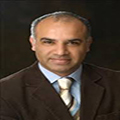 |
Mahjoob Zweiri, Director of the Gulf Studies Center and Professor of Contemporary Middle East History at Qatar University Zweiri also served as the head of humanities department from 2011 to 2016. He earned his PhD in modern Iranian history from Tehran University in 2002. Prior to joining Qatar University in 2010, he was a senior researcher in Middle East politics and Iranian affairs at the Center for Strategic Studies at the University of Jordan. From 2003 to late 2006, he was a fellow of the School of Government and International Affairs, Durham University. He has published more than 50 academic studies on Iran and the contemporary Middle East. |
 |
Liqaa Maki, Senior Researcher at Al Jazeera Centre for Studies Maki earned his PhD in mass communications and a professorship from the University of Baghdad in 1995 and 2002 respectively. Prior to joining Al Jazeera, he served as head of the communications department at the University of Baghdad and assistant dean of the Faculty of Arts. During his academic career, he supervised a large number of master’s and PhD theses. Maki has worked in print and electronic journalism since 1980, specialising in Arab and international affairs. He has conducted plenty of research and studies in various media issues as well as the developments of political and social events in Iraq. In fact, he recently published a book entitled, The Years of Storm: A New Reading of the American Invasion of Iraq. Furthermore, he is also an expert in analysing political events in various countries and a regular guest on different media outlets. |
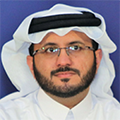 |
Majed Al Ansari, Professor of Political Sociology at Qatar University and Researcher at the Social and Economic Survey Research Institute (SESRI) Al Ansari received his PhD and master’s degree in social transformation from the University of Manchester, and wrote a thesis entitled, “A Minority of Citizens: The Effects of Religious, Social and Political Values on Trust in Expatriates in Qatar”. He previously served at the Qatari Ministry of Foreign Affairs and various civil society institutions. His research interests include public opinion surveys, social resources, political and religious values, charity work and political analysis of domestic and regional issues. He has contributed extensively as a political analyst on different television channels such as Al Jazeera, BBC Arabic, Russia Today, Al Araby TV and Qatar TV. In addition, Al Ansari writes weekly political articles for the Qatari daily, Al Arab. |
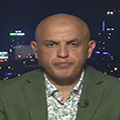 |
Adel Al-Masni, Researcher at the Center for Educational Research and Development in Sana'a Al-Masni holds a master’s degree in management from Dr. Babasaheb Ambedkar Marathwada University in India and a bachelor’s degree in history from Sana'a University in Yemen. He is currently working on a PhD in international relations at Istanbul University.
|